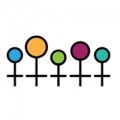Sign up for our monthly Newsletter and get the latest info in your inbox.
Suscríbase a nuestro boletín mensual y reciba la información más reciente en su bandeja de entrada.

I want to tell you about my best friend, my baby, and the love of my life...

We all take some risk in search of companionship, and those with HIV are no exception.

For as long as I can remember, I thought survival and worth were the same damn thing. If I was needed, I mattered. If I was wanted, I was safe.

For decades, I said I didn't want children. Then I said I'd adopt. Then I went back to saying no kids at all. But if I'm being honest, those responses were rooted in trauma...

Sometimes I think of telling my son about my status, but it's not easy.

Your fellow human beings can turn into your Judas Iscariot at any moment in this lifetime. Having friends who are pretenders and when a situation changes, immediately they switch you off.

I've learned that being the center of my care team doesn't mean I have to do it all alone — it means I get to lead the conversation about my body and my healing.

Help and healing are possible. It starts with one act of surrender and one conversation with someone you trust.

On the inside, my spirit was broken into pieces | On the outside, I masked it, very well | With a hyper cheerful personality | Faked my way through | But, I saw the light one day

I wrote a poem for my mother's service, which I called "A Mother's Love." On the tenth anniversary of her death, I wrote a Eulogy for a class project, and I have included both pieces as a tribute to my mother's life.
¿Recibe nuestro boletín?
Sign up for our monthly Newsletter and get the latest info in your inbox.
Suscríbase a nuestro boletín mensual y reciba la información más reciente en su bandeja de entrada.